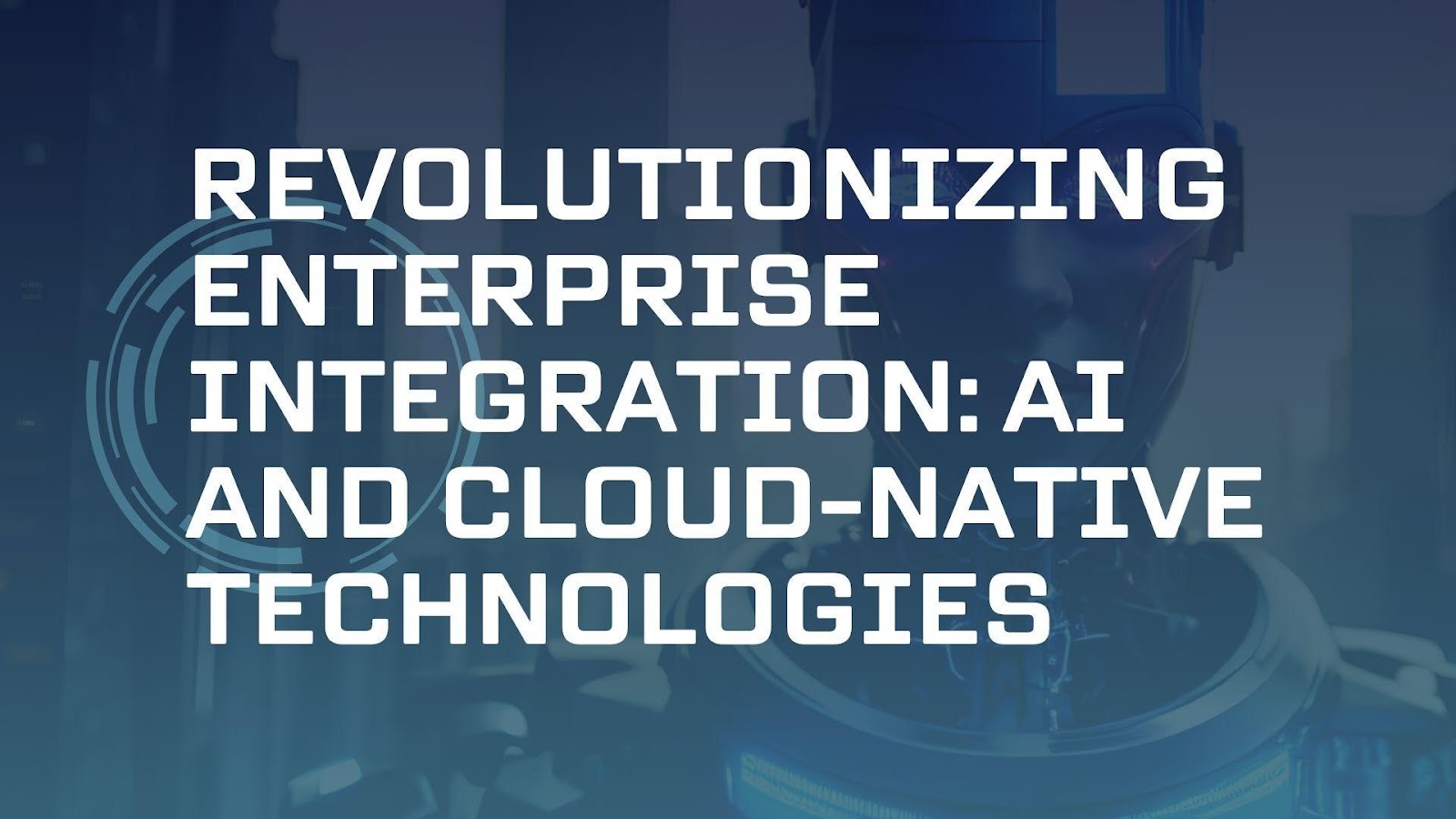Share Share Share Share Email By integrating artificial intelligence (AI) with cloud-native platforms, businesses are witnessing a paradigm shift in enterprise application integration (EAI). This transformative approach enhances operational efficiency, scalability, and adaptability in increasingly complex digital ecosystems. Umamaheswarareddy Chintam , a leading expert in enterprise technology, explores these advancements and their impact on modern business infrastructure.
The Evolution of Enterprise Integration Traditional enterprise integration relied on monolithic architectures and rigid middleware solutions, often requiring extensive maintenance. The emergence of cloud computing has redefined integration strategies, enabling organizations to transition from resource-intensive middleware to agile, cloud-native frameworks. This shift has empowered businesses to streamline workflows, optimize data synchronization, and ensure real-time interoperability between disparate systems.

Overcoming Integration Challenges with AI The rapid expansion of hybrid cloud environments and distributed computing has introduced new integration complexities. Organizations managing diverse IT infrastructures face challenges related to data synchronization, system interoperability, and integration scalability. AI-driven solutions address these hurdles by automating data transformation, predictive analytics, and intelligent workflow management, significantly reducing manual intervention and improving integration efficiency.
AI-Driven Automation in EAI Machine learning and advanced analytics are revolutionizing data integration by automating workflow orchestration. AI-enhanced platforms enable businesses to reduce manual errors in data mapping, predict integration conflicts, and dynamically adjust data flows. Studies indicate that organizations leveraging AI in integration processes achieve a 30% improvement in data processing accuracy, further optimizing enterprise operations.
These AI-driven integration solutions also offer significant time savings, with implementations reporting up to 40% faster deployment cycles compared to traditional methods. The self-learning capabilities of modern integration platforms continuously improve pattern recognition, allowing for proactive maintenance and intelligent schema mapping. By incorporating natural language processing, these systems can interpret business requirements and translate them into technical specifications, bridging the communication gap between business stakeholders and technical teams.
The Rise of Cloud-Native Integration Architectures Microservices architecture has emerged as a cornerstone of cloud-native integration, replacing monolithic systems with modular, independent services. This model enables seamless scalability, efficient deployment, and improved resource utilization. Additionally, event-driven architectures, supported by AI, facilitate real-time data processing and synchronization, ensuring organizations can rapidly adapt to evolving business demands.
The adoption of containerization technologies like Docker and orchestration platforms such as Kubernetes further enhances microservices implementation, providing consistent environments across development and production. API gateways serve as intelligent routers, managing traffic between services while offering security, rate limiting, and analytics capabilities. Domain-driven design principles guide effective service boundaries, ensuring each microservice encapsulates specific business functionality.
This architectural shift has accelerated digital transformation initiatives, with enterprises reporting 60% faster time-to-market for new features and 45% reduction in maintenance costs compared to traditional monolithic approaches. Security and Performance Optimization AI plays a pivotal role in strengthening security protocols within cloud-native integration frameworks. AI-powered security monitoring detects potential threats in real time, reducing false positives and proactively mitigating cyber risks.
Furthermore, predictive analytics enhances system performance by dynamically allocating computational resources, identifying bottlenecks, and optimizing workflow automation. Machine learning algorithms continuously analyze network traffic patterns to establish behavioral baselines, flagging anomalous activities that might indicate security breaches. Zero-trust architecture principles, reinforced by AI-driven identity verification, ensure that every access request is thoroughly authenticated and authorized.
Self-healing capabilities enable systems to automatically respond to incidents, isolating compromised components while maintaining operational continuity. Organizations implementing these advanced security measures report an average 65% reduction in incident response time and 40% decrease in successful breach attempts, significantly improving their overall security posture while maintaining compliance with evolving regulatory requirements. Future Trends: AI and Edge Computing The convergence of AI with edge computing is set to further revolutionize enterprise integration.
By processing data closer to the source, organizations can reduce latency, improve decision-making speed, and enhance operational agility. Additionally, AI-driven DevOps practices are streamlining deployment processes, ensuring continuous integration and deployment (CI/CD) with greater efficiency. In conclusion,As digital transformation accelerates, AI-driven integration frameworks are reshaping how enterprises manage data and system interoperability.
By adopting cloud-native architectures and intelligent automation, businesses can enhance scalability, security, and performance. Umamaheswarareddy Chintam underscores the importance of selecting the right AI-powered integration solutions to maximize efficiency and maintain a competitive edge in the evolving technological landscape. Related Items: AI , Enterprise Application Integration , Umamaheswarareddy Chintam Share Share Share Share Email Recommended for you Transforming Enterprises: The AI and Automation Revolution How AI is Revolutionizing eCommerce: Key Trends from 2025 Balancing Personalization and Privacy: The Future of AI Customization Comments.
Technology

Revolutionizing Enterprise Integration: AI and Cloud-Native Technologies

By integrating artificial intelligence (AI) with cloud-native platforms, businesses are witnessing a paradigm shift in enterprise application integration (EAI). This transformative approach enhances operational efficiency, scalability, and adaptability in increasingly complex digital ecosystems. Umamaheswarareddy Chintam, a leading expert in enterprise technology, explores these advancements and their impact on modern business infrastructure. The Evolution of Enterprise [...]The post Revolutionizing Enterprise Integration: AI and Cloud-Native Technologies appeared first on TechBullion.















